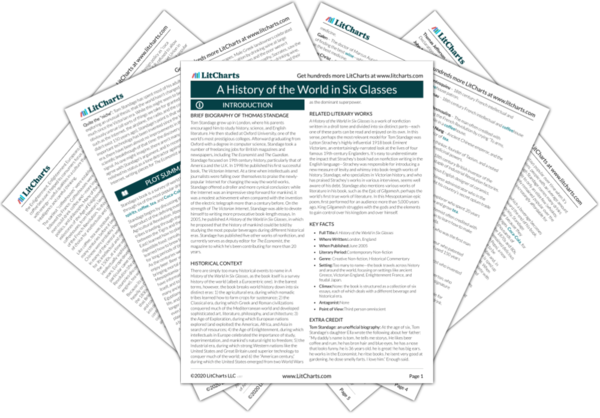Spirits have symbolized multiple, contradictory things to different peoples over time. For the Muslims, who refused to drink alcohol, spirits (even more than other alcoholic beverages) symbolized sin and depravity—the violation of Islamic law. Yet for the Americans of the early 1800s, spirits (such as whiskey and bourbon) had an entirely different symbolic meaning: spirits represented strong opposition to the decadence and tyranny of the Europeans, whose love for wine was well known. It is perhaps this second symbolic meaning that the book portrays as the most influential: while whiskey has lost its specifically anti-European overtones, it continues to imply the same rugged masculinity and adventurousness apparent in the early culture of the United States.
Spirits Quotes in A History of the World in Six Glasses
It soon became customary for Europeans to present large quantities of alcohol, known as dashee or bizy, as a gift before beginning negotiations with African traders.
Jefferson did his best to cultivate wines in America and advocated a reduction in the excise duty charge on imported wine as “the only antidote to the bane of whiskey.” But his cause was hopeless. Wine was far more expensive, contained less alcohol, and lacked the American connotations of whiskey, an unpretentious drink associated with independence and self-sufficiency.
Whatever [the origins of the custom of drinking while trading with Indians], this custom was widely exploited by Europeans, who took care to supply large quantities of alcohol when trading with Indians for goods or land.

















